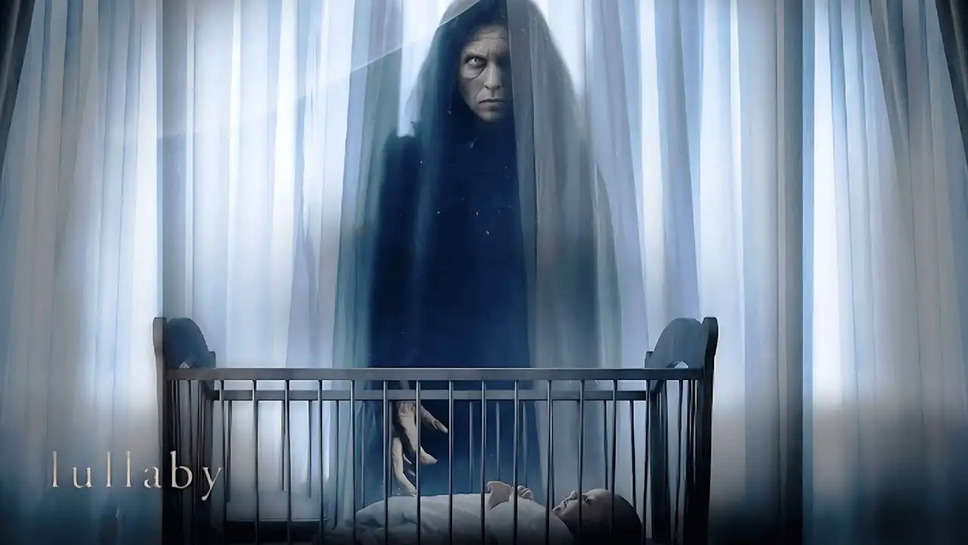Lullaby Ending Explained

Numerous horror movies draw upon the dynamic between a mother and her child to evoke a profound impact on the audience. Some of the most renowned examples include "The Conjuring," "Monstrous," "Carrie," "Hereditary," "Child’s Play," "The Shining," "Poltergeist," "Mama," and "You Are Not My Mother." This choice is rooted in the perception that the maternal-child relationship holds a unique and sacred power, often associated with a divine quality that stands in stark opposition to malevolence. The film "Lullaby" also employs this motif, intertwining it with Biblical themes to craft a chilling narrative.
Within the movie, a mother and her child become the target of a sinister entity driven by a twisted form of love. This ambiguity leaves it to the viewers to determine whether this characteristic sheds a glimmer of compassion on the entity's darkness. The creators skillfully maintain the entity's eerie aura while preserving the clarity of its intentions. Rather than fearing Lilith, the primary antagonist, the audience finds themselves empathizing with her, seeking to comprehend her motivations and actions.

Spoiler Alert: Plot Summary of "Lullaby"
In "Lullaby," the story unfolds as Rachel and John move into a new home with their baby, Elias. They receive a book from Rachel's mother, previously owned by Rachel's sister, Vivian, who is incarcerated. Rachel discovers a lullaby within the book and sings it to her baby, triggering a series of disturbing events, including eerie apparitions. Rachel seeks help from Vivian, and John consults a friend, Rabbi Simowitz. They are introduced to the story of Lilith, the first wife of Adam, as per Judaic and Mesopotamian mythology. Lilith's desire for a child and her banishment from Eden for defying Adam's authority are central elements of the narrative.
While John's visit to the synagogue does not yield substantial information on dealing with Lilith, Vivian pledges to assist Rachel. Vivian, having lost her son Zachary to Lilith, is determined to reunite her family, even if it means sacrificing her own life. Meanwhile, John receives further insights from Rabbi Cohen about Lilith and the lullaby, which involves a series of rituals aimed at summoning Lilith and facilitating the abduction of a baby. These rituals entail singing the lullaby, sacrificing a creature, and substituting a baby's blood with that of a lifeless golem.
As the plot unfolds, Rachel confronts Vivian, who, in an attempt to regain her own son, manipulates the situation by switching Elias with Zachary. The film concludes with a cliffhanger, as Rachel realizes that she must contact Lilith once more to retrieve Elias, setting the stage for a potential sequel.
Exploring the Motherhood Theme in "Lullaby"
"Lullaby" delves into the struggles of three mothers. Lilith, the first, yearns for a child after her banishment from Eden, and her actions stem from this deep desire. Her story raises questions about the impact of patriarchal authority on women's lives, as Lilith's defiance mirrors contemporary challenges faced by women in various parts of the world. The film portrays her as a mother whose love for her child is an overpowering force, which ultimately leads to the events of the story.
Vivian, the second mother, shares a similar experience, having her baby taken by Lilith after singing the lullaby. She embodies the sacrificial love of a mother, willing to risk everything to reunite with her child. Finally, Rachel, the third mother, also faces the dilemma of confronting Lilith for the sake of her son, Elias. While she is reluctantly drawn into this supernatural conflict, her unwavering determination to save Elias underscores the profound maternal love that transcends all obstacles.
In all three stories, the common thread is the unwavering determination of a mother to reclaim her child, emphasizing the film's central theme of motherly love. The title "Lullaby" resonates with the notion of maternal love, as lullabies are traditionally associated with soothing and nurturing infants. This theme unites various perspectives on maternal love, showcasing different facets of a mother's commitment to protecting her child.
Explaining the Ending of "Lullaby"
The film's conclusion reveals a twist, as Rachel, believing she has rescued Elias, discovers that the child she retrieved is Zachary, Vivian's son. The film ends on an unresolved note, suggesting that Rachel and John must perform the lullaby ritual once more to retrieve Elias. The potential for a sequel is hinted at.
A mid-credits scene depicts Vivian, now possessed by Lilith, singing a lullaby in Lilith's world, hinting at further developments. It remains uncertain whether Rachel can rescue her son, and the tension between the mothers and Lilith is far from over.
"Lullaby" is a unique horror film, which, while lacking some conventional horror elements, introduces a fresh concept involving the connections between Heaven, Earth, and Hell through the motif of a mother's lullaby. The film explores the complexities of maternal love and the profound sacrifices mothers are willing to make for their children, leaving the interpretation of these intricate connections to the audience.


